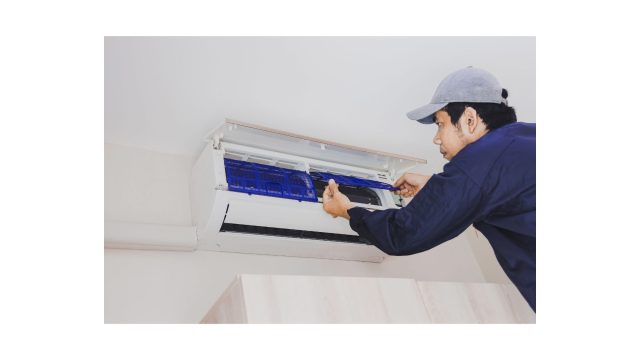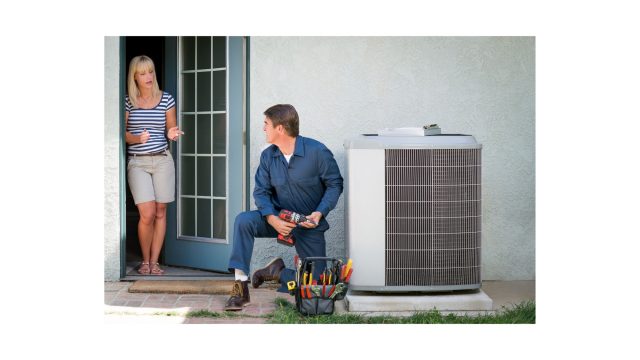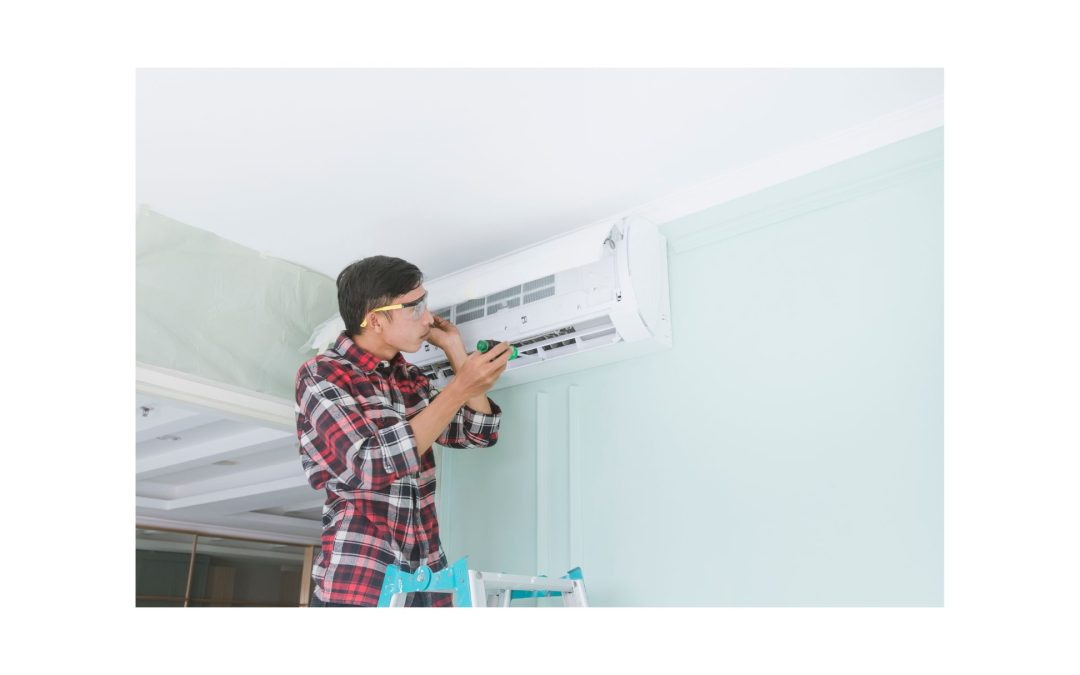In the realm of home climate control, a significant shift is underway, marked by the emergence of a new breed of professionals: HVAC designers. Gone are the days when heating, ventilation, and air conditioning systems were afterthoughts in home construction or renovation projects. Today, these systems are integral components, crucial not only for comfort but also for energy efficiency and environmental sustainability. HVAC designers are at the forefront of this revolution, blending engineering expertise with innovative design principles to create tailored solutions for modern living spaces. Their role extends beyond mere installation; they’re orchestrators of comfort, ensuring that homes are not only adequately heated or cooled but optimized for health, productivity, and sustainability. Join us as we delve into the realm of HVAC design, exploring the trends, technologies, and transformative potential reshaping the way we experience climate control within our homes.
The Evolution of Home Climate Control Systems
Over the decades, home climate control systems have undergone a remarkable evolution, transitioning from rudimentary heating stoves and simple fans to sophisticated HVAC (Heating, Ventilation, and Air Conditioning) systems capable of precise temperature regulation and air quality management. This evolution has been driven by technological advancements, changing environmental concerns, and a growing emphasis on comfort and convenience in modern living. Today, homeowners have access to an array of options, including central heating and cooling systems, ductless mini-split systems, smart thermostats, and more, each offering unique benefits and tailored solutions to suit different preferences and needs. As these systems continue to evolve, the focus remains on enhancing efficiency, sustainability, and user experience, ushering in a new era of home climate control characterized by innovation and optimization.

The Emergence of HVAC Design as a Specialized Field
In recent years, there has been a noticeable shift in the way HVAC (Heating, Ventilation, and Air Conditioning) systems are approached in residential construction and renovation projects, leading to the emergence of HVAC design as a specialized field. Traditionally viewed as purely functional elements, HVAC systems are now recognized as integral components of overall building design, influencing not only comfort but also energy efficiency, indoor air quality, and environmental impact. HVAC designers bring a unique blend of engineering expertise and design sensibility to the table, working closely with architects, builders, and homeowners to create customized solutions that seamlessly integrate with the aesthetic and functional requirements of modern living spaces. This shift underscores the growing importance of holistic approaches to home climate control, where design considerations are as crucial as technical specifications in achieving optimal performance and user satisfaction.
Integrating Sustainability: Green Practices in HVAC Design
As concerns about climate change and environmental sustainability continue to escalate, there is a growing emphasis on integrating green practices into HVAC design. HVAC designers are exploring innovative solutions to reduce energy consumption, minimize carbon footprints, and harness renewable energy sources such as solar and geothermal power. From designing high-efficiency heat pumps and energy recovery ventilation systems to implementing smart zoning and occupancy sensors, sustainable principles are at the forefront of HVAC design strategies. Moreover, the adoption of eco-friendly refrigerants and materials further enhances the sustainability profile of modern HVAC systems. By prioritizing green practices, HVAC designers not only contribute to reducing environmental impact but also help homeowners lower utility bills and achieve long-term savings while enjoying a healthier and more comfortable indoor environment.
Customization and Personalization: Tailoring Climate Control Solutions
One size does not fit all when it comes to home climate control, and HVAC designers understand this better than anyone. They specialize in tailoring solutions to meet the unique needs and preferences of individual homeowners, taking into account factors such as building layout, occupancy patterns, lifestyle habits, and personal comfort preferences. Whether it’s designing a multi-zone heating and cooling system for optimal temperature control in different areas of the home or integrating smart technologies for remote access and personalized scheduling, customization is key to maximizing comfort and convenience. By collaborating closely with clients and leveraging their expertise in HVAC design principles, designers can create bespoke solutions that not only meet functional requirements but also enhance the overall living experience, reflecting the personality and lifestyle of the occupants.
Maximizing Energy Efficiency: The Role of HVAC Designers
Maximizing energy efficiency is paramount in modern HVAC design, and HVAC designers are instrumental in achieving this goal. Through strategic planning and innovative techniques, they ensure HVAC systems operate at peak efficiency, reducing energy consumption and environmental impact.

- Comprehensive analysis: HVAC designers conduct thorough assessments of building structures and usage patterns to identify opportunities for energy savings and efficiency improvements.
- Advanced control strategies: Utilizing state-of-the-art control systems and algorithms, HVAC designers optimize system operation to minimize energy consumption while maintaining comfort levels.
- Strategic equipment selection: From high-efficiency heat pumps to variable-speed technologies, HVAC designers carefully choose equipment that maximizes energy efficiency and performance.
- Embracing sustainability: HVAC designers integrate renewable energy sources and eco-friendly practices into their designs to reduce environmental impact and promote sustainability.
- Continuous optimization: Through ongoing monitoring and adjustment, HVAC designers ensure that systems operate at peak efficiency throughout their lifespan, delivering long-term energy savings and environmental benefits.
By integrating renewable energy sources and sustainable practices, HVAC designers further enhance system sustainability. In conclusion, the expertise of HVAC designers in optimizing energy efficiency is essential for creating sustainable, cost-effective solutions that prioritize comfort and environmental responsibility.
Enhancing Indoor Air Quality: Strategies and Innovations
Indoor air quality (IAQ) is crucial for home comfort and well-being, and HVAC designers are committed to enhancing it. They utilize ventilation, filtration, and humidity control measures to remove airborne contaminants and regulate moisture levels. Using tools like high-efficiency air filters and UV germicidal lamps, designers effectively mitigate indoor air pollutants. Additionally, they consider factors such as building materials and occupant activities to tailor IAQ solutions. By prioritizing IAQ in HVAC design, designers create healthier indoor environments where occupants can breathe easy and thrive year-round.
Smart Homes, Smart HVAC: Automation and Connectivity
The rise of smart home technologies has transformed the way we interact with our living spaces, and HVAC systems are no exception. HVAC designers are at the forefront of this technological revolution, incorporating automation, connectivity, and intelligent control features into their designs to enhance comfort, convenience, and energy efficiency. Smart thermostats, for example, enable remote temperature adjustments and personalized scheduling, allowing homeowners to optimize comfort levels while minimizing energy consumption. Similarly, integrated HVAC systems with sensors and feedback mechanisms can adapt to changing conditions in real-time, adjusting airflow, temperature, and humidity levels for optimal performance and comfort. By harnessing the power of automation and connectivity, HVAC designers empower homeowners to take control of their indoor environment like never before, ushering in a new era of personalized comfort and efficiency in residential climate control.
The Future of Home Comfort: Trends and Technologies in HVAC Design
In envisioning the future of home comfort, HVAC design is poised to undergo transformative changes driven by technological advancements and evolving consumer demands. Several trends and technologies are set to revolutionize the way we experience climate control within our homes:
- Smart HVAC Systems: Integration of artificial intelligence and machine learning algorithms enables predictive maintenance, optimization, and adaptive control, enhancing energy efficiency and user comfort.
- Next-Generation Refrigerants: Adoption of eco-friendly refrigerants with lower global warming potential promotes environmental sustainability and regulatory compliance.
- Advanced Heat Pump Technologies: Innovations in heat pump design and performance unlock greater efficiency and versatility, enabling year-round heating, cooling, and even energy storage capabilities.
- Internet of Things (IoT) Connectivity: Seamless integration of HVAC systems with smart home ecosystems enables remote monitoring, control, and automation for enhanced convenience and energy savings.
- Green Building Practices: Emphasis on holistic approaches to HVAC design incorporates renewable energy integration, passive design strategies, and high-performance building materials to create healthier, more sustainable living spaces.
Embrace these innovations to redefine standards of comfort, efficiency, and sustainability in your home climate control systems.
Conclusion
As we reflect on the evolution of home climate control systems and the emergence of HVAC design as a specialized field, it’s evident that the future of comfort and sustainability in our living spaces is bright. With a focus on integrating green practices, customization, energy efficiency, and indoor air quality enhancement, HVAC designers are reshaping the way we experience and interact with our indoor environments. At Best By Farr LLC, we understand the importance of reliable and efficient air conditioning services in creating optimal living conditions. With our years of experience serving Cottonwood, AZ, and the surrounding areas, we are committed to delivering exceptional solutions tailored to meet all your HVAC needs. Whether you require installation, maintenance, repair, or replacement services, our team of skilled technicians is here to provide you with reliable and professional assistance. Contact us today at 781 Air Park Way Suite #A4, Cottonwood, AZ 86326, or call (928) 282-2250 to experience the difference that Best By Farr LLC can make for your home comfort needs. Let us help you achieve a healthier, more sustainable, and comfortable indoor environment for years to come.


